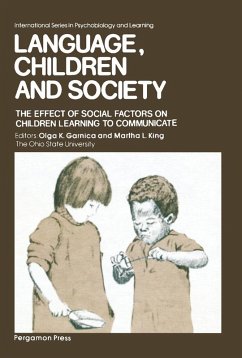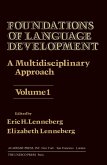Comprised of 17 chapters, this volume begins by painting a vivid picture of human discrimination and prejudice that touches every child involved in the education process in the United States, a result that can be linked to language ignorance. The discussion then turns to some of the contributions of linguistics to education and some of the problems involved in reaching greater cooperation between linguists and educators. The relevance of developments in sociolinguistics to the study of language learning and early education is emphasized. Subsequent chapters focus on the communicative competence of kindergarten children; children's situational variation and situational competence; sex differences in the language of children and parents; and dialogue, monologue, and egocentric speech by children in nursery schools.
This book will be of interest to teachers and students, as well as to practitioners in the fields of educational psychology, psychobiology, psychiatry, linguistics, and childhood education.
Dieser Download kann aus rechtlichen Gründen nur mit Rechnungsadresse in A, B, BG, CY, CZ, D, DK, EW, E, FIN, F, GR, HR, H, IRL, I, LT, L, LR, M, NL, PL, P, R, S, SLO, SK ausgeliefert werden.









